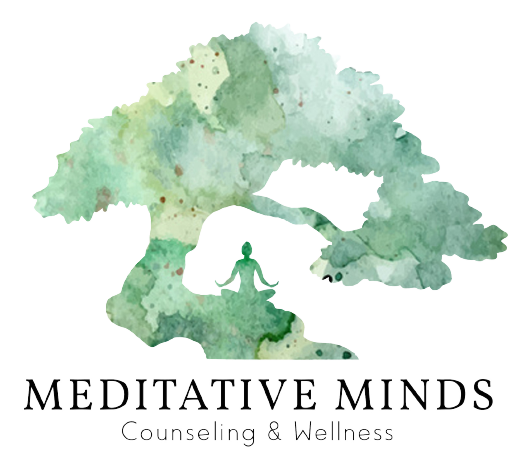The pressure to conform to certain beauty standards can take a toll on our mental health and self-esteem. Body image issues and low self-esteem can manifest in various ways, impacting our relationships, work performance, and overall quality of life. However, there is hope. Therapy offers a safe and supportive space to explore these deeply rooted feelings and beliefs, helping individuals cultivate a healthier relationship with their bodies and themselves. In this blog series, we’ll delve into the topic of body image and self-esteem, focusing on how therapy can be a transformative tool in nurturing confidence and self-worth. We’ll discuss the common challenges people face in this area, explore therapeutic techniques and approaches used to address these issues, and share inspiring stories of individuals who have found healing and empowerment through therapy.
The Journey to Positive Body Image

In a world inundated with images of perfection and unattainable beauty standards, it’s easy to fall into the trap of self-criticism and dissatisfaction with our bodies. Many of us have experienced moments of insecurity or feelings of inadequacy when comparing ourselves to airbrushed models or social media influencers. However, the path to true confidence and self-acceptance begins with embracing our imperfections and nurturing a positive body image. In this article, we’ll explore how therapy can be a guiding light on this transformative journey.
- Acceptance of Imperfections: One of the fundamental principles of cultivating a positive body image is accepting our imperfections. Therapy provides a safe and supportive environment where individuals can explore their feelings and beliefs about their bodies without fear of judgment. Through guided introspection and reflection, clients learn to recognize that perfection is an illusion and that beauty comes in all shapes, sizes, and forms.
- Challenging Negative Self-Talk: Negative self-talk can be a significant barrier to developing a positive body image. Therapy equips individuals with the tools to challenge and reframe these harmful thoughts. By identifying and replacing negative beliefs with more compassionate and realistic perspectives, clients can cultivate a greater sense of self-compassion and acceptance.
- Exploring the Root Causes: Behind every negative body image lies a complex web of underlying emotions and experiences. Therapy delves beneath the surface to uncover the root causes of body image issues, whether they stem from past traumas, societal pressures, or internalized beliefs. By addressing these underlying issues, individuals can heal from within and develop a healthier relationship with their bodies.
- Shifting the Focus: In a culture that often equates beauty with physical appearance, therapy encourages individuals to shift their focus from external validation to internal fulfillment. By emphasizing personal strengths, values, and achievements, clients learn to derive their sense of self-worth from within rather than from external sources. This shift in perspective allows for a more holistic and sustainable approach to self-esteem and confidence.
- Practicing Self-Compassion: Central to the journey of embracing imperfections is the practice of self-compassion. Therapy teaches individuals to treat themselves with kindness, understanding, and acceptance, especially during moments of self-doubt or insecurity. By cultivating a mindset of self-compassion, clients can navigate the ups and downs of their body image journey with greater resilience and grace.
Unpacking the Emotional Roots of Body Image Issues

Body image issues are often deeply intertwined with our emotions, experiences, and beliefs about ourselves. While society often emphasizes physical appearance, the emotional roots of these issues can run much deeper. In this article, we’ll explore how therapy can help individuals heal from within by unpacking the emotional origins of their body image struggles.
Understanding Emotional Roots
At the core of many body image issues lie complex emotions such as shame, insecurity, and self-doubt. Therapy provides a safe space for individuals to explore and understand these underlying emotions, tracing them back to their origins. Whether rooted in past traumas, childhood experiences, or cultural influences, uncovering these emotional roots is essential for healing and transformation.
Exploring Past Experiences
Our perceptions of our bodies are often shaped by past experiences and interactions. Therapy offers a supportive environment for individuals to examine the impact of these experiences on their self-image. By exploring memories, beliefs, and narratives surrounding their bodies, clients gain insight into how past events have influenced their present-day perceptions and behaviors.
Challenging Negative Beliefs
Negative beliefs about our bodies can stem from a variety of sources, including societal standards, media portrayals, and interpersonal relationships. Therapy helps individuals challenge and reframe these harmful beliefs, replacing them with more realistic and compassionate perspectives. By recognizing the inherent worth and value of their bodies, clients can begin to shift towards a more positive self-image.
Processing Trauma
For some individuals, body image issues may be linked to past trauma or abuse. Therapy provides a safe and supportive space for survivors to process and heal from these traumatic experiences. Through trauma-informed approaches such as EMDR (Eye Movement Desensitization and Reprocessing) or somatic therapy, clients can address the emotional wounds that contribute to their body image struggles and begin the journey towards healing.
Building Self-Compassion
Central to the process of healing from within is the cultivation of self-compassion. Therapy teaches individuals to treat themselves with kindness, understanding, and acceptance, especially in relation to their bodies. By practicing self-compassion, clients can begin to nurture a more positive and nurturing relationship with themselves, free from harsh self-criticism and judgment.
Developing Coping Strategies
In therapy, individuals learn healthy coping strategies to manage difficult emotions and navigate triggers related to body image issues. These strategies may include mindfulness techniques, relaxation exercises, or assertiveness training. By developing effective coping skills, clients can build resilience and empower themselves to cope with challenging situations without resorting to harmful behaviors or thought patterns.
Conclusion
The exploration of body image and self-esteem through therapy, as exemplified by Meditative Minds Counseling & Wellness in Simi Valley, CA, USA, underscores the importance of nurturing confidence and self-worth. Through tailored therapeutic approaches, individuals are empowered to navigate the complexities of their self-perception, fostering resilience and cultivating a positive relationship with their bodies. By providing a supportive environment for introspection and growth, Meditative Minds exemplifies the potential for therapy to serve as a catalyst for transformative change, guiding individuals towards a more profound sense of acceptance and self-love.


